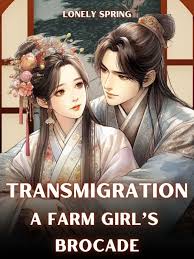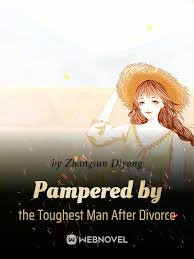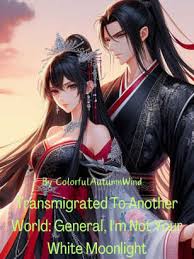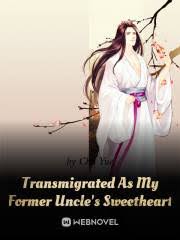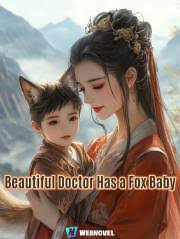The Story in 3 Sentences
A modern woman transmigrates into the body of Qian Yixiu, a frail farm girl in ancient China whose father has just died and whose mother has descended into madness, leaving her to shoulder the burden of a broken household .
Rather than succumb to despair, she leverages her knowledge of the future to innovate, turning toward commerce and craftsmanship to build wealth and stability from the ground up .
Her journey evolves from mere survival to shaping her own destiny, navigating family politics, societal expectations, and unexpected alliances that ultimately redefine her place in the world .
Why It Stands Out
1. From Dirt Floors to Brocade Dreams
The novel masterfully transforms the humble setting of rural poverty into a canvas for ingenuity and quiet rebellion. Unlike many transmigration tales fixated on palace intrigue or martial dominance, this story finds drama in dye vats, weaving looms, and market negotiations, making economic empowerment feel as thrilling as any sword duel.
2. The Anti-Damsel Blueprint
Qian Yixiu refuses to wait for rescue. Her strength lies not in supernatural powers or royal blood, but in observation, patience, and strategic thinking. She repairs relationships like she mends cloth—thread by careful thread—proving that emotional intelligence can be the sharpest tool in a world that undervalues women.
3. Slice of Life with Stakes That Bite
Beneath its cozy domestic surface pulses real tension: hunger, social shame, familial betrayal. The narrative never trivializes the precarity of peasant life, yet balances it with warmth, humor, and small victories that accumulate into profound change, offering a grounded take on the “rags to riches” arc.
Characters That Leave a Mark
There’s Wan Dazhong – the pragmatic nephew from Darong Village whose initial aloofness masks a keen sense of justice and loyalty, eventually becoming a crucial ally in Qian Yixiu’s commercial ventures and family negotiations .
You’ll meet Lady Tang, who is Qian Ergui’s wife and a frequent visitor whose sharp tongue and emotional volatility often stir household tensions, yet her presence reveals the fragile alliances within the extended Qian clan .
And Shang Qingyun? They’re the one who was once Qian Yixiu’s childhood neighbor and scholarly rival, whose path diverges into officialdom, creating a bittersweet counterpoint to her earthbound rise and symbolizing the roads not taken .
The Flaws Fans Debate
Some readers note the pacing can drag in the middle chapters, where daily routines and minor family squabbles repeat without significant plot advancement.
A few criticize the translation for occasional name inconsistencies or awkward phrasing that momentarily pulls readers out of the historical atmosphere .
Others argue that while the protagonist is resourceful, secondary characters sometimes fall into archetypes—greedy relatives, jealous rivals—without enough psychological depth to feel fully realized.
Must-Experience Arcs
Ch. 1–50: The Fractured Hearth – Qian Yixiu awakens in a destitute home, her mother unstable, her siblings vulnerable, and the village skeptical. She begins with simple trades—selling herbs, mending clothes—and plants the first seeds of her independence.
Ch. 200–350: Threads of Enterprise – Having secured basic stability, she expands into textile production, innovating dye techniques and navigating merchant guilds. This arc showcases her growing influence beyond the farm, clashing with local elites and forging unexpected partnerships.
Ch. 600–750: Brocade and Bloodlines – Now a respected figure, Qian Yixiu confronts legacy issues: inheritance disputes, marriage politics, and the arrival of powerful in-laws like Madam Wan. Her wealth is tested not by poverty, but by the complexities of maintaining dignity in a stratified society .
Killer Quotes
“Even the finest brocade begins as a single thread pulled from chaos.”
“Survival isn’t about waiting for the storm to pass—it’s about learning to weave in the rain.”
“Kindness without boundaries is a well without walls; it gives until it collapses.”
Cultural Impact
The novel has drawn over 1.3 million views on Webnovel, resonating particularly with readers who enjoy slow-burn, female-led economic ascension stories .
Fans often praise its “cozy capitalism” aesthetic, spawning memes about “starting a cottage industry after transmigrating” and “when your side hustle becomes your dynasty.”
It’s frequently recommended alongside titles like “Farmer’s Daughter” and “The Merchant’s Pearl” as part of a growing subgenre that centers women’s agency through trade rather than romance or combat.
Final Verdict
Start Here If You Want:
A heroine who builds her empire with needle and ledger, not sword or seduction.
A transmigration story rooted in realism, where every coin earned feels hard-won and meaningful.
Quiet triumphs that accumulate into seismic life changes, perfect for readers who savor gradual, earned progress.
Study If You Love:
Narratives that explore pre-modern Chinese rural economics through a feminist lens.
The literary tradition of “domestic epic,” where household management becomes a form of statecraft.
Character studies that prioritize resilience, adaptability, and emotional labor as heroic traits.
Avoid If You Prefer:
Fast-paced action or high-stakes political maneuvering in imperial courts.
Stories where romance is the primary engine of the plot.
Protagonists with overt magical abilities or cheat systems that bypass struggle.
